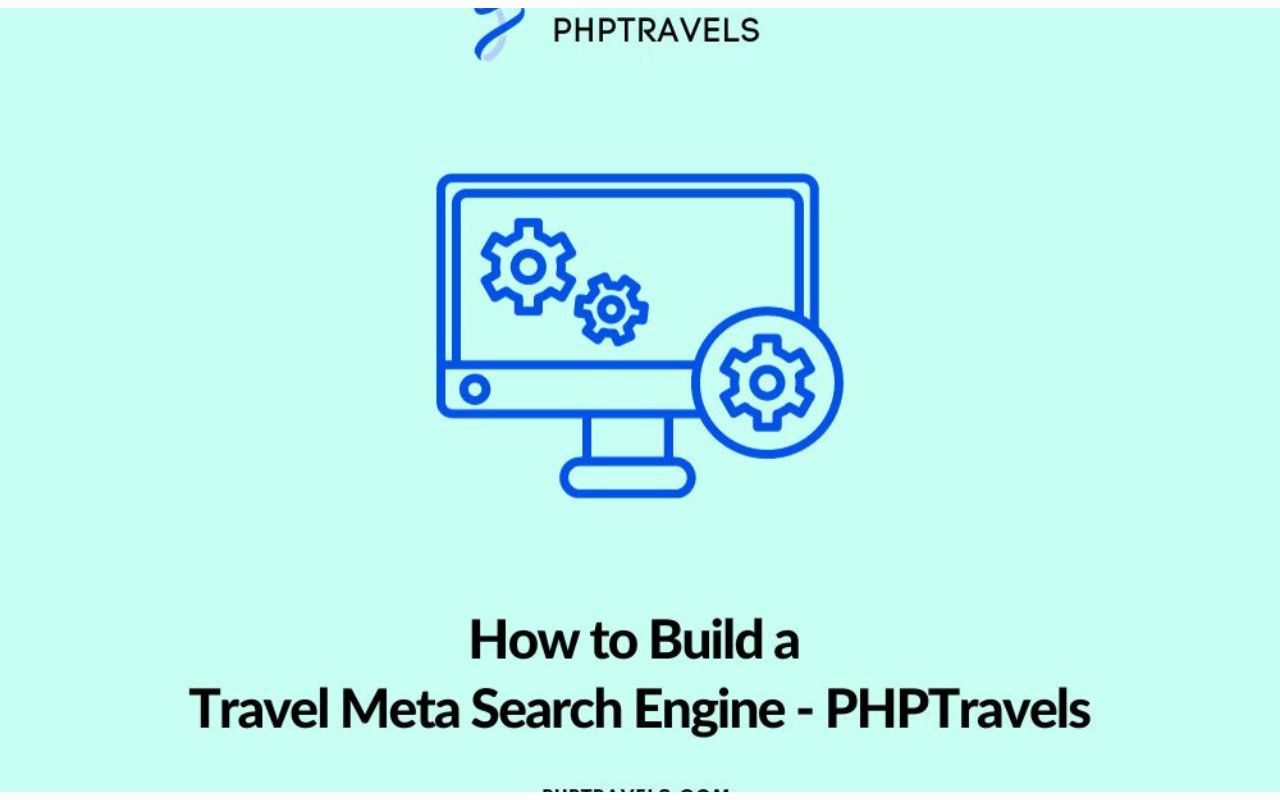How to Build Travel Meta Search Engine Start by aggregating data from multiple travel sources. Integrate APIs that provide real-time pricing and availability for flights, hotels, and rental services.
A travel metasearch engine is a powerful tool that lets users compare prices and options across various travel websites. Its core function is to gather vast information from different travel services and present it in a user-friendly format.
Crafting such a platform involves a combination of technical prowess, industry knowledge, and a keen understanding of travelers’ needs. The goal is to create a seamless search experience that delivers comprehensive results quickly, often in conjunction with user-friendly features such as filters, maps, and reviews. By prioritizing accuracy, speed, and a broad range of data, developers can construct a meta-search engine that stands out in the competitive travel industry, helping adventurers make informed decisions while simplifying the planning process.
The Rise Of Meta Search In Travel

Travel meta-search engines are reshaping the way we plan and book trips. They simplify our search for the best travel deals. Imagine getting flight, hotel, and car rental options all in one place! That’s the convenience meta-search engines offer today.
The Concept Behind Meta Search Engines
Metasearch engines work like supercharged search tools. Instead of searching on different websites, users get all the information in one spot. These engines pull data from various travel sites. Look below to see how they benefit us>
- Time-saving> They save precious time by avoiding multiple tabs.
- Cost-effective> Users compare prices easily, finding the best deals.
- Convenience> They provide a streamlined experience from search to booking.
Impact On Travel Planning And Booking
Meta search engines have a significant impact on travel. They change how we book trips. See the influence of these points:
- Quick comparisons> Travelers compare prices and options quickly.
- Informed decisions> With more data, users make better choices.
- User experience> A smooth online experience means happy travelers.
To build one, understanding these concepts is critical. They serve as the foundation for a successful travel meta-search engine.
How to build a travel metasearch engine free>
To build a free travel meta-search engine, gather data from various travel websites through APIs or scraping. Next, design a user-friendly interface where travelers can input their destination, dates, and preferences.
Develop algorithms to aggregate and organize search results, ensuring accuracy and relevancy. Implement filters for refining searches based on price, location, amenities, and other criteria.
It’s crucial to optimize the website for speed and mobile responsiveness. Monetization can be achieved through affiliate partnerships with booking platforms, where you earn a commission for each referral.
Regularly update the website to maintain data accuracy and improve user experience. Finally, promote your meta-search engine to attract users through online channels and social media.
Core Features Of A Travel Meta Search Engine
Travelers today expect the best deals at their fingertips. A travel meta search engine delivers just that. It needs specific core features to stand out. Let’s explore these must-have functionalities to understand their impact on the user experience.
Real-time Pricing Information
Real-time pricing information is crucial. It allows users to make informed decisions quickly. This feature syncs with various airlines and hotels. It updates prices constantly. Users see the most current deals available.
Filtering And Sorting Mechanisms
Customization boosts user satisfaction. Filtering and sorting mechanisms provide this personal touch. Users can prioritize search results. They can filter by price, location, or star rating. Sorting options include cost, proximity, or user reviews.
User-friendly Interface
A user-friendly interface is essential. Complex sites push users away. The design should be simple. Navigation must be intuitive—clear calls to action guide users throughout their journey on the site.
Mobile Responsiveness And App Integration
In today’s mobile-first world, mobile responsiveness is non-negotiable. The search engine must adapt to various screen sizes. App integration extends functionality. It allows users to access features on the go.
Technical Aspects Of Building A Meta Search Engine
Launching a travel meta-search engine requires a firm grasp of technical aspects that deal with data handling and user experience. This engine must efficiently manage extensive data from various sources while ensuring users get accurate and swift results. Let’s dive into the technicalities that form the backbone of a robust travel meta-search engine. View the home page link.
Data Aggregation Techniques
- Crawling> Automated bots retrieve data from travel websites.
- Scraping>Tools extract specific data like prices and reviews.
- Third-party services> These offer pre-aggregated travel data.
Apis And Feeds>Sourcing Information
Type Description Example
Global Distribution Systems (GDS) Platforms integrating airlines, hotels, and car rentals. Sabre, Amadeus
Direct API connections with travel service providers for real-time data. Booking.com API
Flight Data Services Services offers data like schedules and flight statuses. OAG, Flightstats
Scalability And Performance Optimization
High-traffic periods demand a scalable infrastructure. The right tools can help:
- Load balancers> They distribute traffic evenly.
- Cloud services> Flexible resources that adjust to demand.
- Caching> Stores data for quick access.
- Content Delivery Networks> Speed up data delivery around the world.
Ensuring Data Accuracy And Timeliness
- Implement regular updates to travel data feeds.
- Integrate real-time APIs for current information.
- Employ data validation processes to check for errors.
- Use time-sensitive caching to balance load and freshness.
User Experience And Interface Design And How to Build Travel Meta Search Engine

The heart of a travel metasearch engine lies in its User Experience and Interface Design. Users expect to find their perfect trip easily and quickly. A well-designed interface can differentiate between a new user and a loyal customer. Let’s dive into how to craft an engaging and efficient design for a meta-search engine tailored explicitly for travelers.
Meta search engine for flights>
A meta-search engine for flights is a powerful tool that aggregates flight information from multiple sources, allowing users to compare prices and options across various airlines and travel agencies.
Users can quickly access a comprehensive list of available flights, corresponding fares, and additional details by entering their desired travel dates and destinations.
These platforms streamline the flight search process, saving users time and money by presenting them with a wide range of choices in one convenient location.
With flexible date searches and price alerts, meta-search engines for flights empower travelers to find the best deals and make informed decisions when booking their air travel.
Intuitive Navigation> A Key To User Engagement
For any traveler using your search engine, simplicity is vital. Intuitive Navigation ensures that users find what they’re looking for with ease. These are the components to pay attention to:
- Clear labels for every travel option.
- Search filters to narrow down results quickly.
- Interactive maps that show locations and prices at a glance.
The goal is to ensure users can navigate the platform without needing help. They will return if you employ this tactic.
Responsive Design For Cross-platform Compatibility
Travelers use various devices to plan their trips. Your metasearch engine must look good and function well on all of them. Having a responsive design is essential; it is not an alternative.
Here are key features:
- Flexible layouts that adjust to screen sizes.
- Readable text without requiring to zoom in.
- Accessible menus and buttons for both mouse and touch navigation.
This approach ensures a seamless experience from desktop to mobile.
Incorporating User Feedback For Continuous Improvement
User feedback is invaluable.
It guides improvements and enhancements:
- Review mechanisms to gather user input.
- Analysis of feedback to identify common issues.
- Regular updates that reflect user suggestions.
This process closes the loop between user expectations and your offering.
Monetization Strategies
Turning your travel meta search engine into a profitable venture involves innovative Monetization Strategies. Various avenues can help you generate revenue, from affiliate marketing to subscription models. Below, we explore effective methods to monetize your platform.
Affiliate Marketing Models
Affiliate marketing stands as a lucrative approach for travel meta-search engines. You earn a commission whenever users book flights, hotels, or other services through your affiliate links. Choose affiliates with attractive commission structures and reliable tracking systems to maximize earnings.
- Select partners with high conversion rates.
- Use deep linking to direct users to specific products or offers.
- Make your website as user-friendly as possible.
Ads And Sponsored Listings
Displaying ads creates an additional revenue stream—partner with networks that pay per click or impression. Sponsored listings, where businesses pay to highlight their offerings on your site, also work well.
Type Description Pros
Display Ads Visual ads from networks Passive income
Sponsored Listings Paid top spots in search results Direct income from businesses
Subscription Services And Premium Features
Offer premium subscriptions for enhanced features or no-ad experiences. Users pay for value-added services like personalized travel alerts or price predictions.
- Design packages with enticing extra functions.
- Market the benefits of the premium tier.
- Ensure seamless upgrade processes.
Legal And Privacy Considerations
When building a travel metasearch engine, you must consider legal and privacy matters. You will handle lots of personal data, and protecting this is critical. You must follow different laws and tell users how their data gets used. Let’s explore the things you should think about.
Data Protection Regulations
Data laws vary worldwide, and keeping up is a must. You need to know what each law requires. For the EU, there’s GDPR. The USA has different laws per state, like CCPA in California.
- Understand local data protection laws
- Build systems that keep user data safe
- Stay updated with legal changes
User Privacy Policies
Your privacy policy should be clear and easy to understand. Describe your data collection, use, and sharing procedures. Users must agree to this policy before using your search engine.
- Create a detailed privacy policy
- Make sure users can access it easily
- Update it as laws or practices change
Navigating Global Compliance Issues
Travel search engines work globally, so you must meet international laws. This can be complex, but it’s essential to get it right. Failure to comply can lead to fines or restrictions on your service.
Region Key Law Notes
EU GDPR User consent is crucial
USA CCPA California-specific
Asia PDPA Varies by country
Launching And Marketing Your Meta Search Engine
Welcome to the thrilling world of travel tech! You’ve crafted the ultimate travel metasearch engine; now, the real journey begins — launching and marketing it.
Building Partnerships With Travel Providers
Strong alliances with airlines, hotels, and car rental agencies are the backbone of any travel meta-search engine. Here’s how to build them:
- Negotiate deals that benefit both parties.
- Ensure a wide array of options for users.
- Focus on unique offerings to stand out.
Search Engine Optimization Strategies

SEO is your best friend in the digital landscape. Follow these best practices to climb the search results:
- Include relevant keywords in the content.
- Optimize for mobile users.
- Keep loading speed fast.
Leveraging Social Media For Brand Visibility
Social platforms can skyrocket your engine’s popularity:
- Create engaging content that encourages shares.
- Use targeted ads to reach potential users.
- Engage with followers for a personal touch.
Analytics And User Behavior Tracking For Growth
Understanding your audience is critical. Use analytics to:
- Analyze trends and adjust strategies.
- Improve user experience with behavioral data.
- Make informed decisions with real-time stats.
Frequently Asked Questions For How To Build Travel Meta Search Engine
What Is A Travel Meta Search Engine?
A travel meta search engine compares flights, hotels, and car rental prices from multiple websites to find the best deals for users. It aggregates data for easy comparison without directly handling bookings.
How Do Travel Search Engines Make Money?
Travel search engines generate revenue through advertising, commission from bookings, and selling user data analytics to businesses. They partner with airlines, hotels, and rental services to earn from referrals and transactions facilitated on their platforms.
How Do Meta Search Engines Make Money?
Metasearch engines generate revenue primarily by displaying ads, offering pay-per-click marketing, and earning affiliate commissions from directing traffic to third-party sites.
How Do I Create A Travel Booking Site?
Choose a niche for your travel booking site and decide on your target audience. Select a reliable web hosting service and domain name. Use a platform suited for e-commerce to design your website with user-friendly Navigation. Ensure mobile compatibility and integrate secure payment gateways.
Collaborate with travel service providers for content.
Conclusion
Building a travel metasearch engine can be a rewarding venture. It requires strategic planning, precise execution, and ongoing optimization. Remember, success lies in offering unique value and a seamless user experience. Start your journey with the proper knowledge, and your platform may become a go-to resource for avid travelers.
Embrace the challenge, and watch your vision take flight.

I am a travel specialized writer and blogger based in the USA and UK, CANADA. I have four years of experience in travel and all types of tours. So I work on solving these issues and give various tips on these issues. I handling carefully of these issues. So, I will share this information with everyone.

